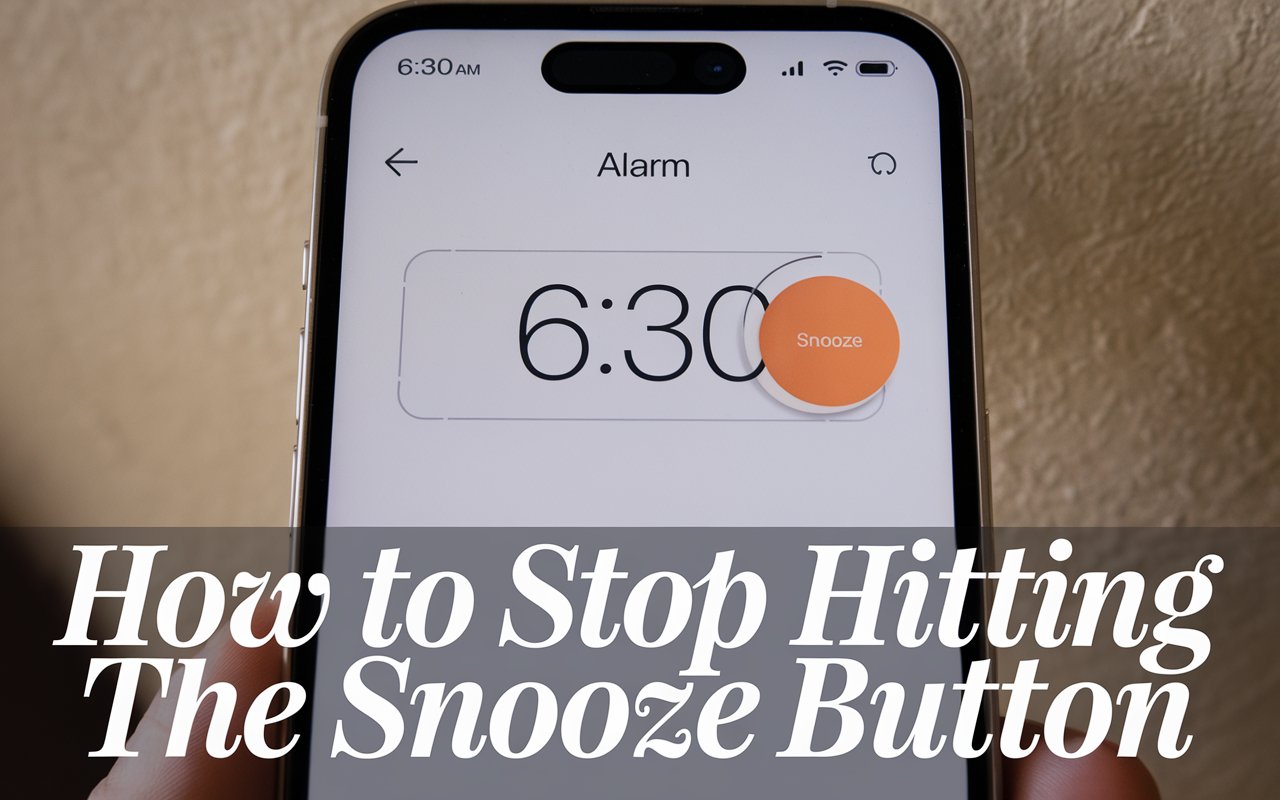Do you find yourself hitting the snooze button every morning? I used to do it too. It felt like stealing a few extra moments of sleep. But those few minutes often turned into frantic mornings and less productive days.
If you’re in the same boat, you’re not alone. Let’s dive into why this happens and how you can break free from the snooze button trap.
Key Takeaways
- The snooze button offers temporary relief but impacts your day negatively.
- Understanding sleep cycles and habits is key to changing your routine.
- Small changes to your evening and morning routines can make waking up easier.
- Tracking progress and rewarding yourself builds consistency over time.
Why We Love the Snooze Button
The snooze button feels comforting. After all, who doesn’t want a few extra minutes of rest? It’s like pressing pause on the day’s demands. For me, it was a way to stay cozy under my blankets, pretending the world could wait.
Psychologists explain that this behavior comes from our brain seeking short-term rewards. By hitting snooze, we trick ourselves into believing we’re gaining rest. But those extra minutes are often light sleep, which doesn’t refresh us.
Many people snooze because they set alarms too early. They’re not ready to wake up, so snoozing becomes a habit. This false sense of control over time can feel comforting, but it usually backfires.
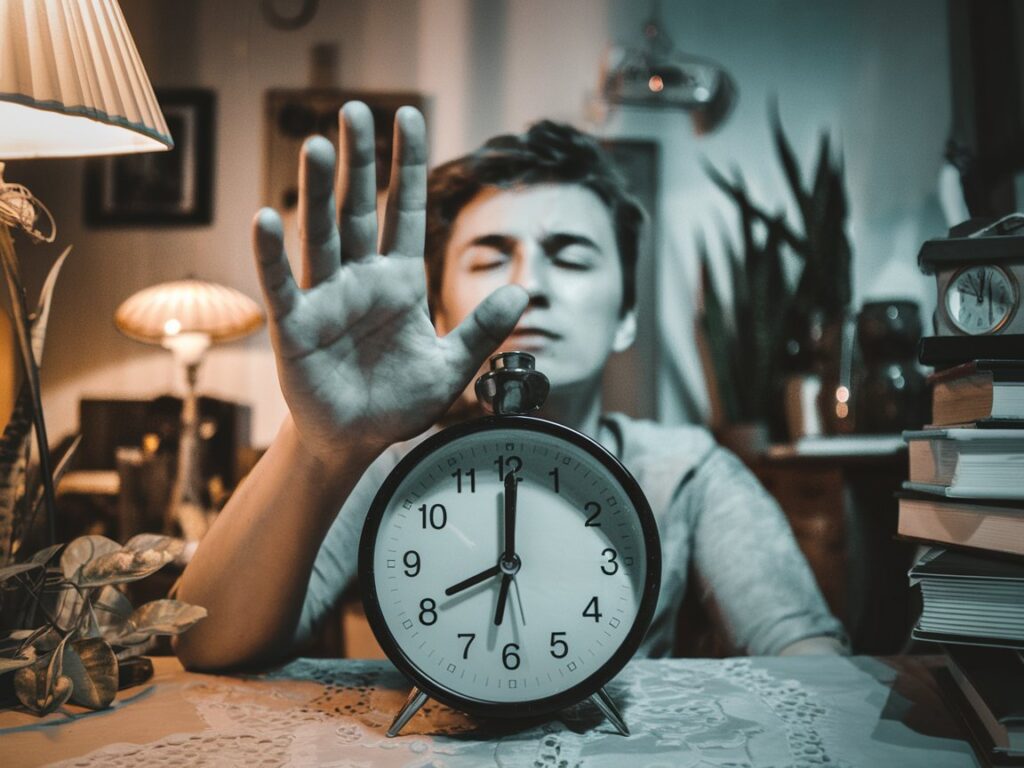
How It Affects Our Mornings and Productivity
Snoozing disrupts your morning rhythm. Instead of starting your day smoothly, you end up rushing. I remember mornings when I snoozed three times, only to realize I had 15 minutes to get ready. It’s stressful and sets the tone for a chaotic day.
This habit also drains your morning discipline. Waking up late leaves no room for a peaceful routine. Skipping breakfast, forgetting essentials, or rushing to work becomes common. Over time, these small disruptions hurt your productivity.
Instead of starting your day focused, you’re catching up. This snowballs into feeling less in control of your tasks. Breaking the snooze cycle is essential if you want more productive mornings.
The Science Behind Snoozing
What Happens to Your Brain When You Snooze
When your alarm rings, your brain starts waking up. Hitting snooze interrupts this process. Instead of transitioning to full alertness, your brain re-enters a lighter sleep phase. This disrupts your ability to feel refreshed.
The term “sleep inertia” explains why snoozing makes you groggy. Sleep inertia is the disoriented feeling after waking. Snoozing worsens it by starting and stopping your wake-up process multiple times. This leaves you feeling foggy for hours.
Why Snoozing Disrupts Your Sleep Cycles
Sleep works in cycles, each lasting about 90 minutes. When you hit snooze, you interrupt these cycles. Instead of completing a full cycle, your body enters fragmented sleep. These interruptions can make you feel more tired than if you had just gotten up.
Experts recommend setting your alarm for the time you actually need to wake up. This avoids unnecessary interruptions and aligns with your natural sleep rhythm.
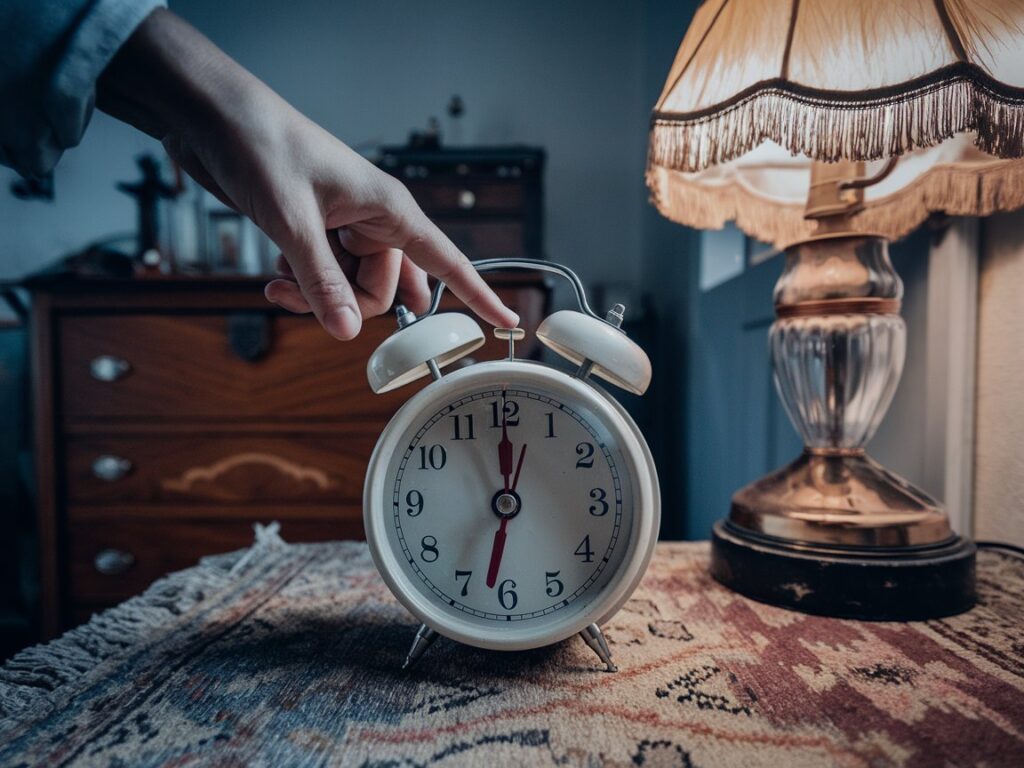
Understanding Your Snooze Habit
Identifying Your Sleep Patterns
Breaking the snooze habit starts with understanding your sleep. Ask yourself: Are you getting enough rest? If not, your body will crave extra sleep in the morning.
Use a sleep tracker to analyze your patterns. This can help identify if you’re sleeping too late or waking up at the wrong part of a cycle. Tracking your sleep also helps you notice trends, like feeling tired after specific habits.
How Your Routine Impacts Your Behavior
Your daily routine plays a huge role in whether you hit snooze. Late-night scrolling or binge-watching keeps your mind active, delaying sleep. Poor nighttime habits lead to exhaustion, making mornings harder.
A consistent bedtime can prevent this. When I started winding down earlier, I noticed a big difference. Sticking to a routine helps your body recognize when it’s time to sleep and wake up. Over time, this reduces your reliance on alarms altogether.
The Negative Effects of Hitting Snooze
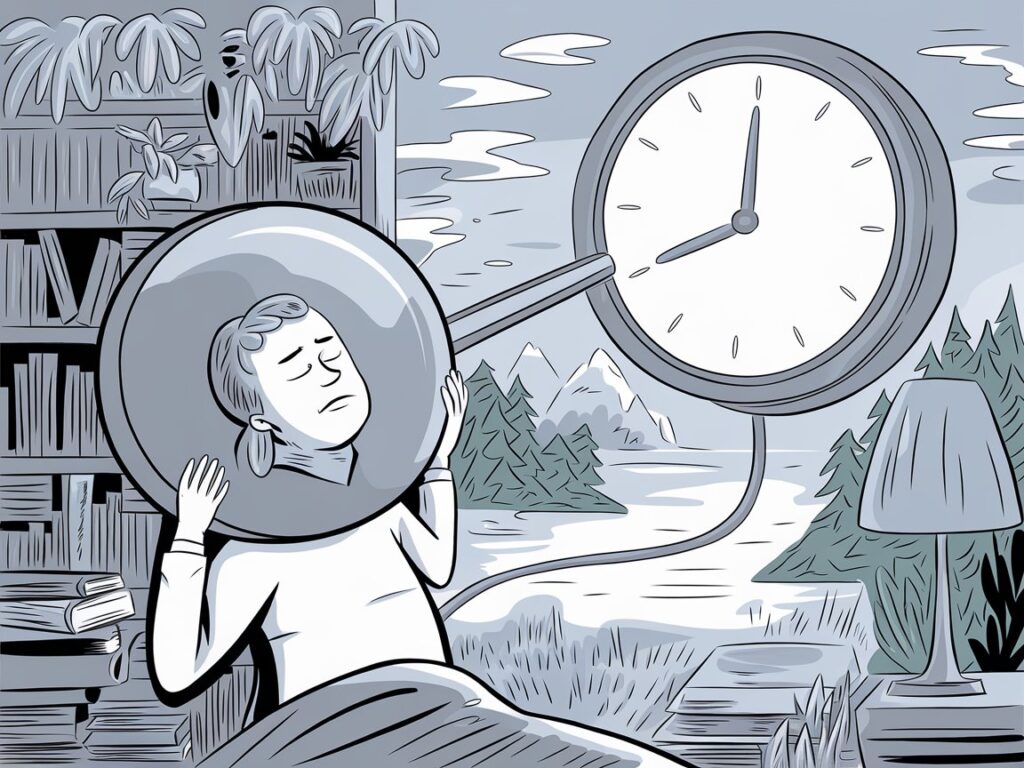
Impact on Mental Clarity
Hitting snooze affects your wake-up habits and mental clarity. Those fragmented sleep cycles leave you feeling groggy and unfocused. Starting your day in this state makes it harder to concentrate and complete tasks efficiently.
Studies show that consistent snoozing increases brain fog. It’s like trying to drive through a thick fog—everything takes longer, and mistakes happen more easily. Prioritizing quality sleep helps you wake up sharper.
Health Consequences of Poor Sleep
Beyond mental clarity, snoozing can harm your health. Sleep disruptions increase stress levels and affect your immune system. Long-term effects include higher risks of heart issues, weight gain, and poor mental health.
By skipping the snooze button, you’re investing in better sleep quality and overall health. Small changes to your routine can have big benefits for your body and mind.
Steps to Stop Hitting Snooze
Improve Your Nighttime Routine
The secret to waking up easily starts the night before. A calming nighttime routine signals your body it’s time to rest. I found that dimming the lights and avoiding screens an hour before bed improved my sleep quality.
Here’s what you can do:
- Set a consistent bedtime.
- Avoid caffeine and heavy meals late at night.
- Practice relaxation techniques, like deep breathing or reading a book.
Creating a soothing pre-sleep environment makes mornings less of a struggle.
Gradually Adjust Your Wake-Up Time
If you’re used to hitting snooze, don’t try to wake up an hour earlier overnight. Gradual changes work better. Start by setting your alarm just five minutes earlier each day. This gives your body time to adapt.
Use a table like this to track your progress:
| Day | Alarm Time | Notes |
| Day 1 | 7:00 AM | Felt a little groggy |
| Day 5 | 6:55 AM | Adjusting well |
| Day 10 | 6:50 AM | No snooze today! |
Small, consistent changes build lasting habits.
Setting Up a Productive Morning Routine
Why Your Morning Starts at Night
Your morning success depends on nighttime preparation. When you plan your day the night before, you wake up with purpose. This eliminates decision fatigue, making mornings smoother.
Try laying out your clothes, packing your lunch, or writing a to-do list before bed. These small actions help you feel in control and focused as soon as you wake up.
Creating a Positive Wake-Up Ritual
Starting your day on a positive note can make all the difference. For me, this meant creating a simple morning ritual. I stretch, drink water, and listen to uplifting music. These small steps energize me and replace the urge to snooze.
Choose rituals that excite you. It could be enjoying a cup of coffee, journaling, or stepping outside for fresh air. The key is to make waking up something you look forward to.
Tips to Make Waking Up Easier
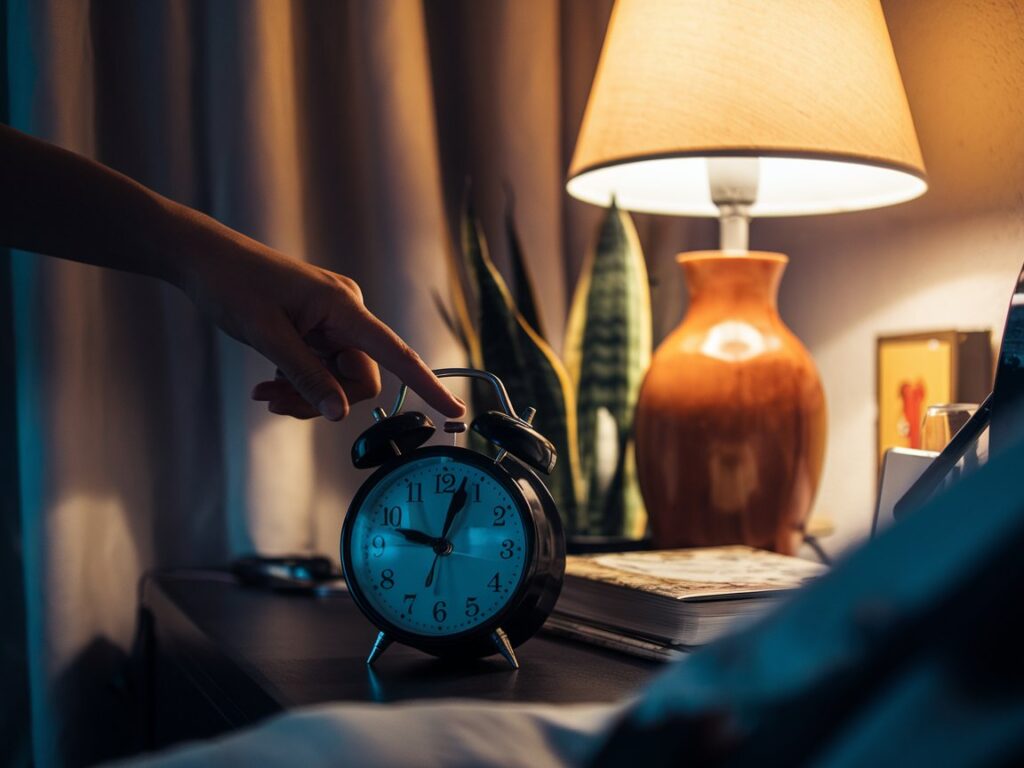
Place Your Alarm Across the Room
One of the simplest tricks is placing your alarm far away. When you have to get out of bed to turn it off, you’re more likely to stay up. This eliminates the temptation to hit snooze.
I started using this trick, and it worked wonders. It forces you to move, waking up your body in the process. Pair this with a loud or engaging alarm tone for best results.
Use an Engaging or Uplifting Alarm Tone
Traditional alarm sounds can feel jarring. Switching to an engaging or cheerful tone makes waking up less dreadful. Try songs that uplift your mood or sounds that gently ease you awake.
Experiment with different tones to find what works best for you. The goal is to start your day feeling motivated, not annoyed.
How to Stay Consistent with Your Wake-Up Goals
Track Your Progress
Keeping track of your progress helps you stay motivated. Use a journal or app to log your wake-up times. Note how you feel each morning. Seeing improvements over time reinforces your efforts.
Here’s an example of what you can track:
- Wake-up time
- Snooze attempts
- Energy levels
- Productivity during the day
Tracking makes your goals tangible and keeps you accountable.
Reward Yourself for Sticking to the Plan
Rewards can make habit-building fun. Treat yourself when you hit milestones. Maybe it’s enjoying your favorite breakfast or buying something you’ve been eyeing. Positive reinforcement keeps you motivated.
Over time, these small rewards train your brain to associate waking up with good feelings. This builds long-term morning discipline and consistency.
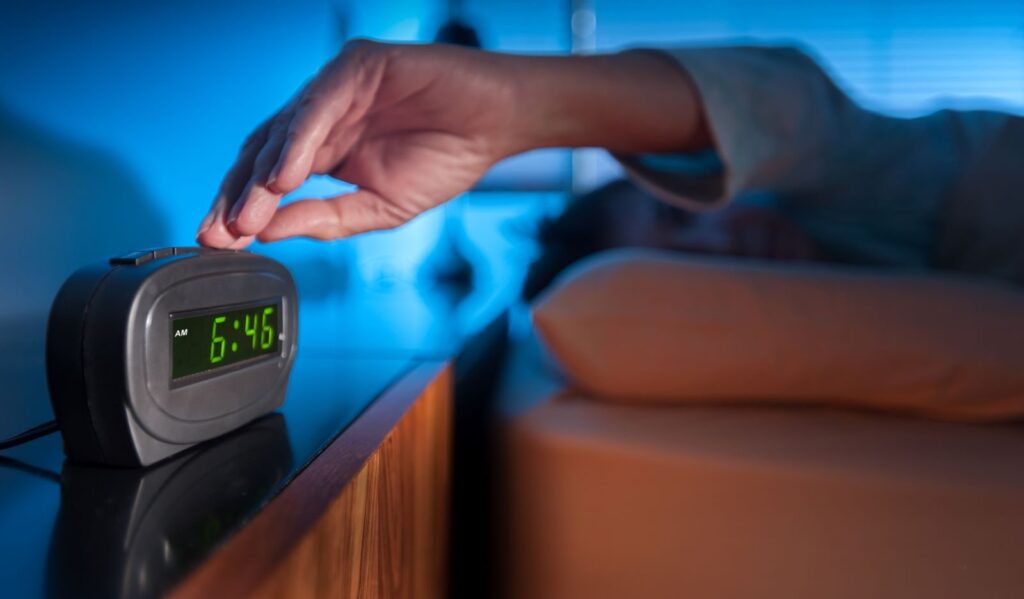
FAQs About Stop Hitting the Snooze Button
How can I improve my wake-up habits?
Focus on your nighttime routine, track your progress, and use alarms effectively. Gradual changes work best.
What are the benefits of no snooze mornings?
Skipping snooze improves mental clarity, productivity, and overall health. It also reduces stress.
Can I wake up without an alarm?
Yes, with a consistent sleep schedule, your body can wake naturally. Start by adjusting your bedtime and wake-up time gradually.
Final Thoughts
Breaking the snooze habit isn’t easy, but it’s worth it. I’ve experienced firsthand how better wake-up habits can transform your day. With small changes and consistent effort, you can wake up feeling refreshed and ready to tackle anything. Skip the snooze button, and embrace mornings with purpose.
